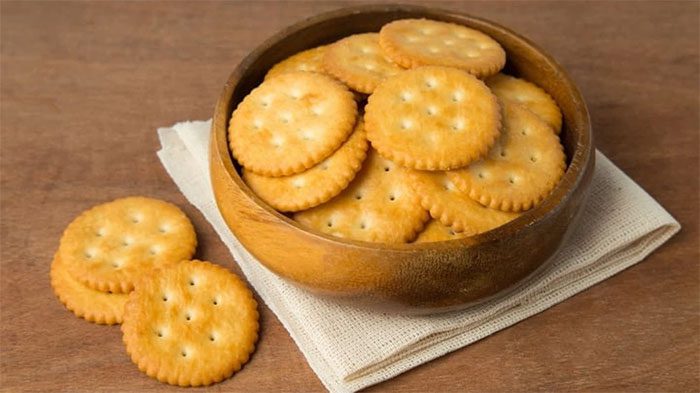When it comes to cookies, most people focus on the flavor, rarely questioning why cookies often have a serrated edge.
Cookies are a convenient snack, perfect for taking to work, school, travel, or picnics. Their versatility is impressive; they can be enjoyed with a cup of tea in the morning, dipped in milk, or paired with peanut butter or chocolate for a delicious treat.

Not everyone knows why cookies often have a serrated edge. (Image: Chefiit).
Cookies have become increasingly diverse in shape and flavor. However, if you pay attention, you’ll notice that thin, crispy cookies with a buttery taste and a hint of salt are typically round or rectangular with a serrated edge.
Why Do Cookies Often Have a Serrated Edge?
Historically, many people believed that this design was simply for aesthetic appeal, to make the cookie look less monotonous and more attractive.
However, recently, the official TikTok account of Ritz— the globally renowned cookie brand known for its iconic serrated-edge cookies—shared a video that surprised many social media users.
In the clip, a representative from Ritz explained the reasoning behind the serrated edge on cookies. The primary purpose of the wavy, serrated design is to facilitate cutting cheese to enjoy with the cookie. Cheese is a classic accompaniment when savoring Ritz cookies.

The convenience of cutting cheese is the reason for the serrated edge on cookies. (Image: The Manc).
Cookies are a go-to snack for busy individuals who still want to provide their bodies with necessary nutrients. Historically, savory cookies were often paired with cheese, which led manufacturers to design the wavy edge for this purpose. Over time, people became accustomed to having serrated edges on sweet cookies as well.
Many netizens were skeptical of this explanation, believing that Ritz’s video was just a playful joke. However, after this intriguing revelation from the famous cookie brand, many fans expressed curiosity and began to “follow the trend” in real-life applications, all exclaiming, “It really is convenient!”
Do Cookies Make You Gain Weight?
Cookies typically contain a lot of energy. On average, two small cookies contain about 20 grams of carbohydrates, 6 grams of fat, 5 grams of sugar, totaling 150 calories.
Cookies are high in saturated fats, empty calories, and a significant amount of sodium, while being low in protein, fiber, and essential vitamins and minerals.
Due to their ingredients, including cream, sugar, and flavorings, cookies contain unhealthy fats and high sugar levels. Consuming them in excess can lead to weight gain, acne, and nutrient imbalances.
To ensure that cookies do not negatively impact your health, choose those with simple ingredients, minimal flavorings, and made from whole wheat flour or oats to increase fiber content, which is beneficial for digestion and helps eliminate toxins.
With regular cookies, it’s best to limit your intake to about 1-2 cookies per day; if you’re trying to lose weight, it’s advisable to avoid them altogether. Never use cookies as a main meal; they should only be considered snacks.


















































